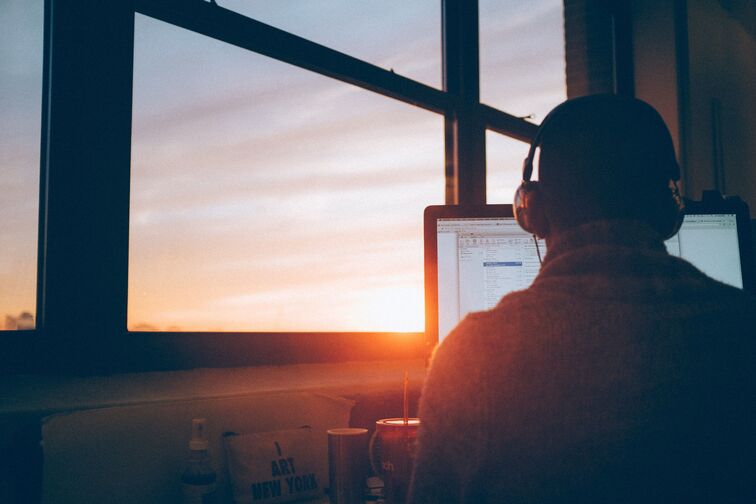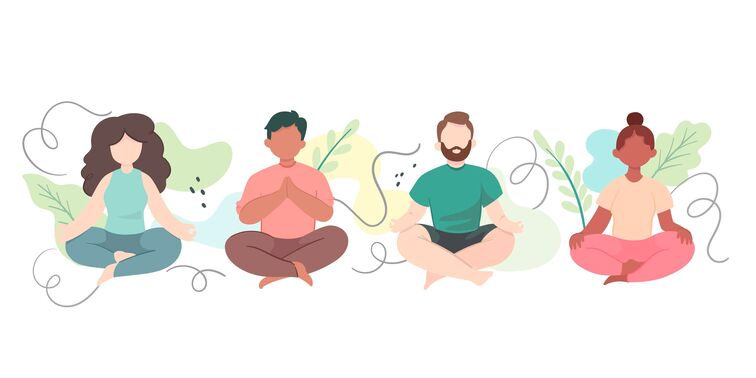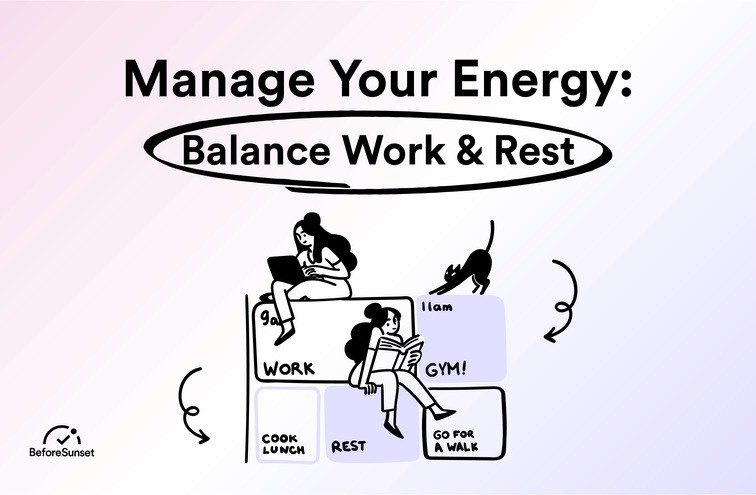On days when our workload goes up, we tend to increase our work hours in reaction. Overtime is of course inevitable every now and then. However, working until late for days on end can take a toll on your actual productivity levels. The solution is easy: Manage your energy!
As most of us have recently experienced, COVID-19 and telecommuting have meant longer workdays. A study suggests that the average time a remote employee spends on their computer in UK, Canada and USA, has increased by over two hours per day since the pandemic.
Manage your time. Manage your energy.
Long hours do not necessarily translate into more productivity.
For instance, a Stanford professor found that our productivity drops sharply after working over 50 hours per week. And that those who log in 70 hours are no more productive than those who work 55 hours.
Likewise, an Asian technology company unveiled that their employees increased their total work hours by 30% during the pandemic. However, their output per hour fell by a whopping 20%.

The message is clear. We need to prioritize the productivity of our efforts, rather than the hours worked per se. To be able to achieve that, you need to manage your energy. And then reflect this to your job.
Follow these methods:
Experts suggest that a good method is to carve out, say, 45 minute or 1 hour "deep work" sessions in your workday, and aim for a spike in energy and focus during these periods.
According to American Psychological Association (APA), excessive workloads are biggest sources of work stress. Probably costing you a lack of balanced work style and energy. To cope with that, according to the APA, you need to learn how to relax. Meditation, deep breathing exercises, and mindfulness are all techniques that might help.
Begin by spending a few minutes each day on an essential task such as breathing, walking, or eating a meal. With practice, you'll be able to focus intentionally on a single charge without getting distracted. And you'll discover that you can apply it to many various parts of your life.

You can even practice yoga if you want to take things a step further. Yoga before work can help you get a more energetic and focused start to your day. If you don't have time in the morning, you can do it during your work breaks at your office desk! Don't complain; a 10-minute yoga exercise at your desk can help you refocus on your work. It's also a way to get out of your back pain from that office chair!
Here are a few examples of yoga poses that you can do in your office:
- Shoulder Rolls
- Neck Stretch
- Chair Twist
- Open Chest Stretch
While practicing it, to ensure a better focus, try not to allow anything to distract you temporarily. As if you were having a meeting with your psychologist or doctor.
THE IMPORTANCE OF DOWNTIME
After such a bout of concentrated work, be sure to take your rest. We should never underestimate the importance of time off, and schedule moments of relaxation during the workday, experts suggest.
To illustrate this, a professor at Harvard Medical Schools draws attention to the importance of using both "focus and unfocus circuits" in our brains. To sustain bouts of deep work, you need periods of doing nothing.

For instance, the period right after lunch might be ideal for a downtime slot. When you could opt for a short walk with colleagues, or maybe try to spend some quality time with your kids.
In fact, on a weekly basis;
- Blocking time on your calendar for events with friends and family is crucial to maintain high energy levels. Socializing regularly has a strong impact on your mental resilience. Don't get carried away by work, and make sure to incorporate time for social gatherings in your weekly schedule.
- Try to make room for personal time in addition to social gatherings.
- Exercising during the downtime will be highly beneficial to your body (primarily if you work from home) and your mental health.
- Night running, fitness and synchronous swimming will reduce your stress level with endorphins. Moreover, the tiredness of sports will make you sleep more comfortably at night.

Last but not least, be sure to get enough sleep. You will see the difference when you take a deep night's sleep. Even though some people out there can get by on four or five hours of sleep per night. Yet you are unlikely to be one of them. As most of us have experienced, sleep deprivation takes a heavy toll on our performance the next day. And we simply need a minimum of seven hours of sleep each night.
To conclude, following a few sensible tips can go a long way in spurring your energy.

